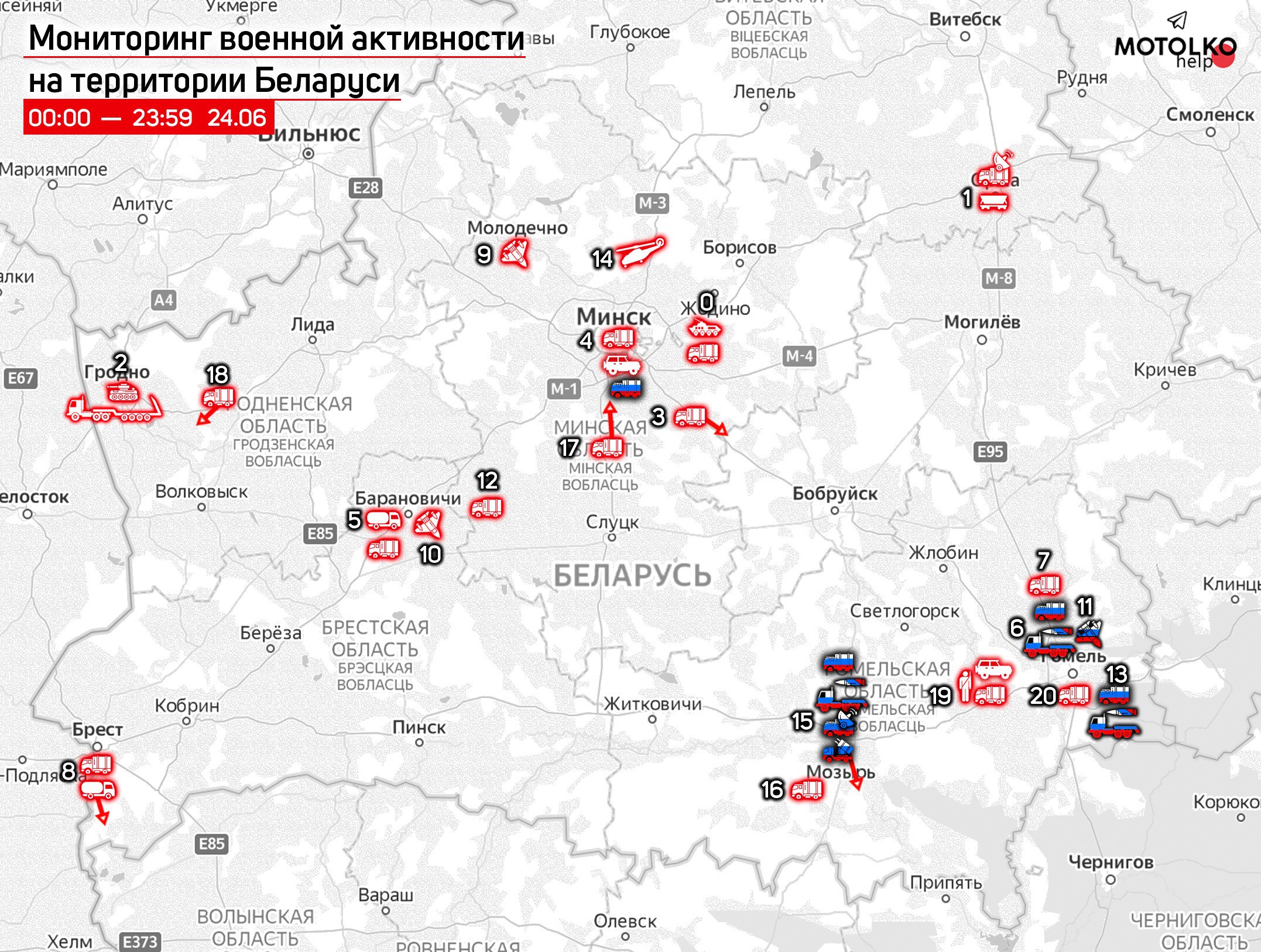Moscow seeks to keep Minsk in its back pocket
 The situation got worse
The situation got worse

Minsk’s attempts to play an independent role in regional security issues will be limited by the confrontational actions of the Kremlin, which Belarus has neither the means nor the will to mitigate.
On June 20th, the Ministry of Defense of Belarus announced the resumption of arms control verification activities and floated the possibility of permitting foreign inspection activities on Belarusian territory on a reciprocal basis. On the same day, a visit was organised by foreign military attaches to a heavily guarded section of the Belarusian-Ukrainian border.
On June 23rd, on a visit to Minsk, Russian Foreign Minister Sergei Lavrov supported the resumption of Russian-Ukrainian negotiations in Belarus.
On the morning of June 25th, Ukraine was subjected to one of the largest Russian missile attacks of the war. Ukraine claims that most of the missiles were launched from Belarusian territory of Belarus:
- 20 air-to-ground and surface-to-surface missiles struck the Chernihiv region;
- 24 missiles were launched at the Zhytomyr region from the airspace of Belarus.
Despite rhetoric to the contrary, Moscow seeks to diminish Minsk’s status as an independent player in regional politics and security. This nullifies Belarusian plans for a role in peace talks with Ukraine and the rhetorical confrontation between Russia and Lithuania over transit to the Kaliningrad region. A sharp decline in the supply of Russian gas to the European market leaves no room for dialogue between the Belarusian regime and the West, especially in a situation where Minsk publicly expresses full solidarity with the Kremlin on security issues in Europe.
Russia’s extensive use of Belarusian military infrastructure and territory to wage war with Ukraine leaves no chance for Minsk to avoid engaging in a military confrontation between Moscow and NATO, the probability of which is already non-zero and growing.
Subscribe to our newsletter




Situation in Belarus
Constitutional referendum: main consequences


 Video
Video
How to count the political prisoners: are the new criteria needed?


 Video
Video
Paternalism In Decline, Belarusian Euroscepticism, And The Influence Of Russia


 Video
Video












